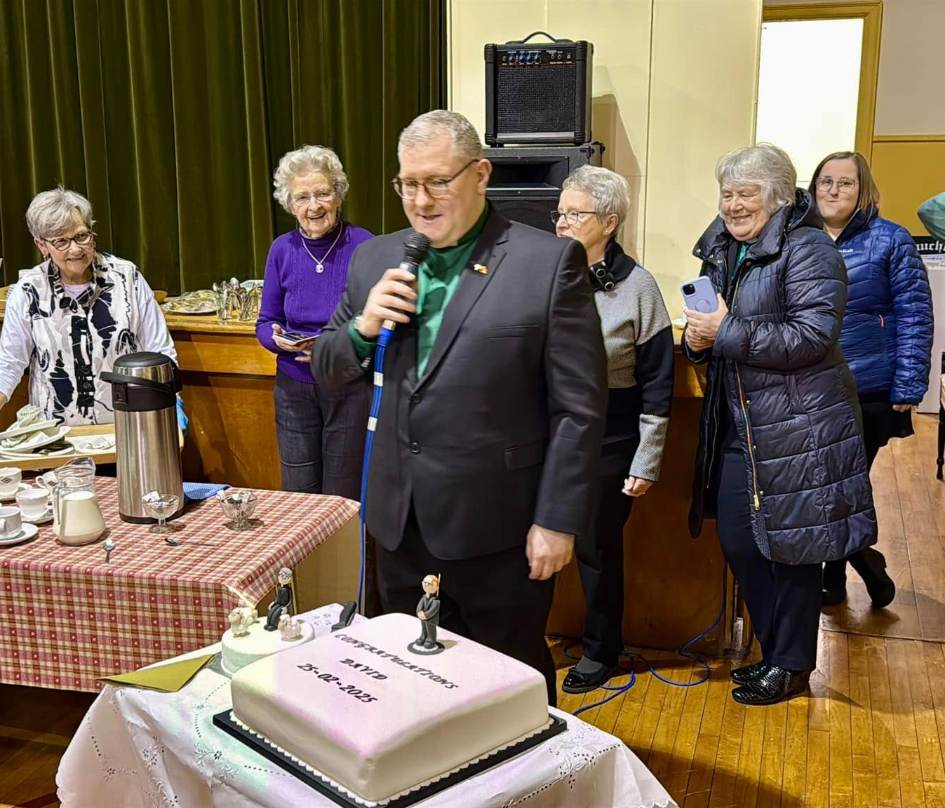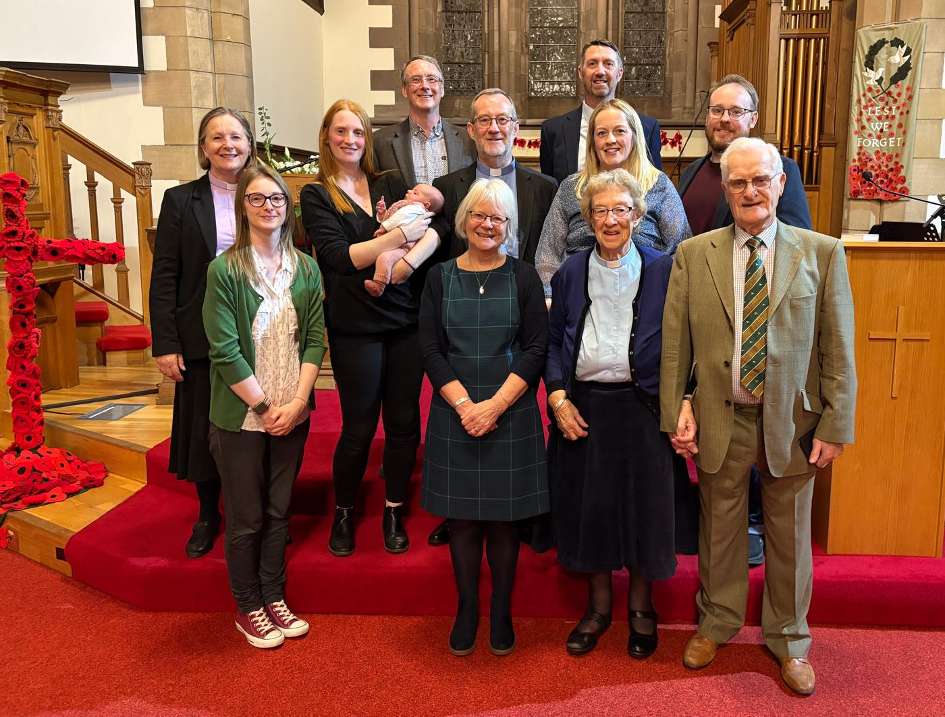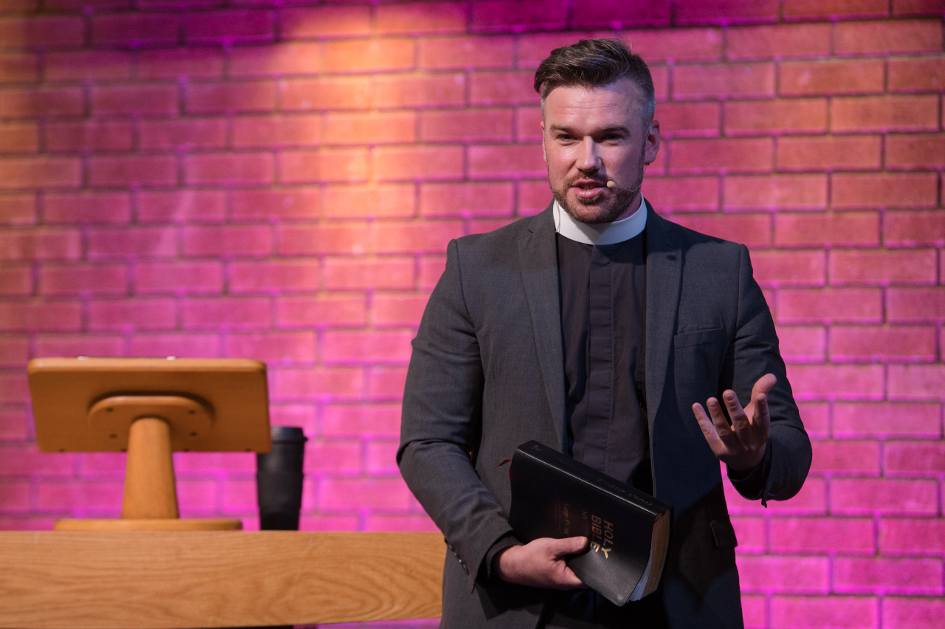Minister makes emotional pilgrimage to Japan in honour of prisoner of war father
Published on 5 August 2024 6 minutes read
A minister has fulfilled a 60-year dream to make a pilgrimage to Japan in honour of his father who was a prisoner there during the Second World War.
Rev Ian Gilmour travelled to Hiroshima where Private David Gilmour was held in a work camp for more than three years.
It was liberated after the American B-29 bomber Enola Gay dropped an atomic bomb over the city on 6 August 1945.
The minister took his father's British Army field book with him to the Hiroshima Peace Memorial, the only structure left standing in the area where the bomb exploded, and prayed for peace.
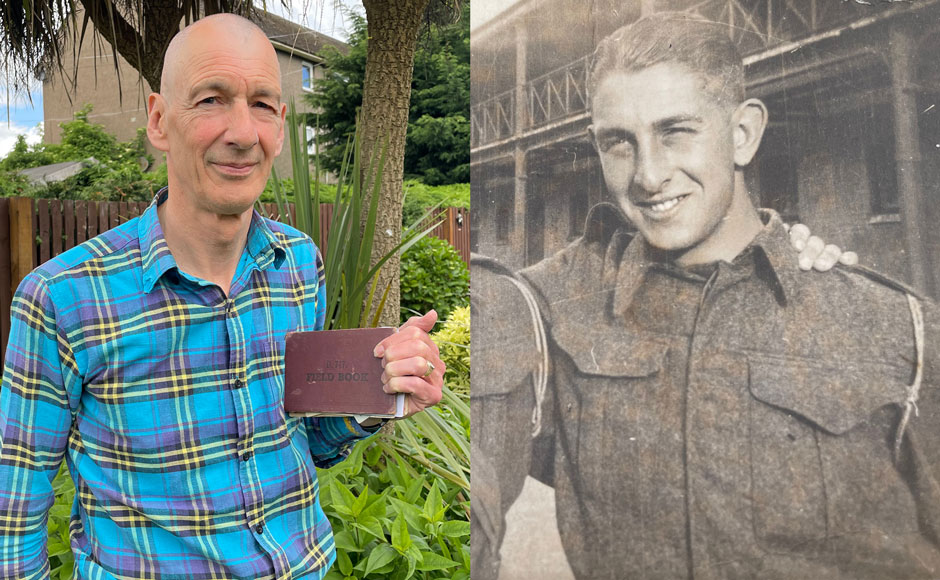
Private David Gilmour of the Royal Army Service Corps was captured by the Japanese during the Battle of Singapore in February 1942.
Like all Japanese prisoners of war, he was badly mistreated, forced to work tirelessly on a minuscule diet of poor-quality rice and suffered from Beriberi disease and dysentery due to malnutrition.
Standing just under 6ft tall, he was in and out of hospital during his captivity and only weighed six stones when he was set "free" on 15 August, 1945 - Victory over Japan Day which brought the war to an end.
After returning to his home in the Dennistoun area of Glasgow, he refused to eat rice ever again.
But despite his traumatic ordeal, he was "not bitter" towards the Japanese and told his wife Mary and three sons that he wanted to return to the country one day to see what it was like in peacetime.
Sadly this was not to be because his time in the camp took an enormous toll on his physical and mental health and he died at the age of 45 in 1963.
The youngest in the family, Rev Ian Gilmour was only seven-years-old at the time and for the last 60 years he has longed to fulfil his father's dream and visit Hiroshima.
As a busy parish minister and family man, it was not possible to visit Japan until recently.
Mr Gilmour, who has retired from parish ministry, was unable to find the exact location of the camp as it is not a place that the Japanese like to remember.
Instead he visited the Hiroshima Peace Memorial, the only structure left standing in the area where the atomic bomb exploded.
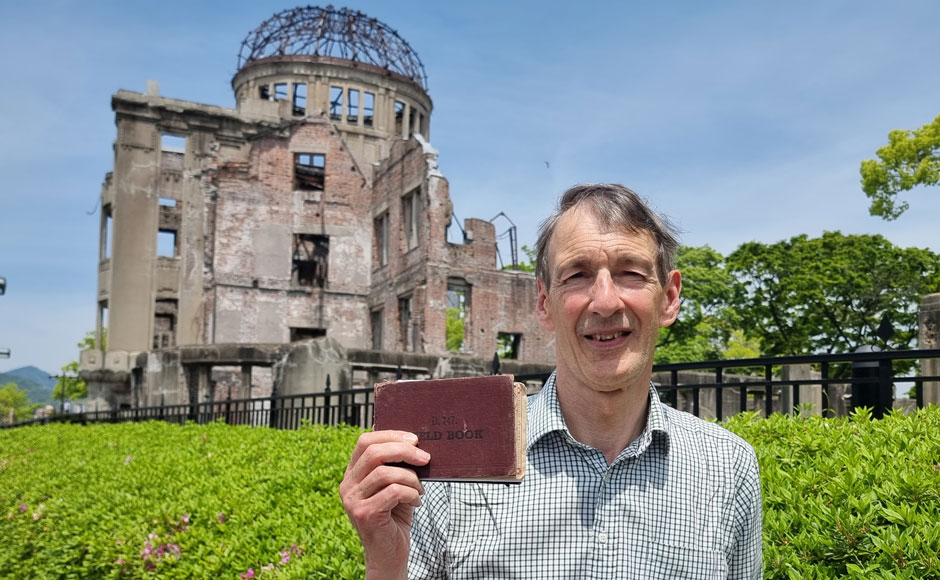
Mr Gilmour placed the field book on an altar surrounded by flowers.
He gave thanks to God for his father's life and memory and said a prayer for peace as he reflected on the impact of ongoing conflicts around the world such as Ukraine and Gaza.
The minister recalled: "It was very moving and I feel that I honoured my father's memory – it felt good and right and it meant a lot to me.
"It was important for me to take his army field book so that there was something owned by him going back to Japan.
"It was an upsetting experience as I reflected on what happened to him, his fellow prisoners of war and the tens of thousands of civilians who died after the bomb was dropped.
"It was emotional as it allowed me to better value his life and what he went through and acknowledge that my life and my family's life came out of terrible suffering.
"So, in a sense, my life was dependent on a horrendous event that my father survived."
Mr Gilmour, who was accompanied by his wife Donna, said there are thousands of colourful origami cranes around the memorial, made by people from across the world as a sign of peace.
It is estimated that 140,000 people in Hiroshima were killed and at least 74,000 people died in Nagasaki after an atomic bomb was dropped there on 9 August, 1945.
Private David Gilmour was 27 when he finally returned to Glasgow and worked for a building materials supply merchant and later the publishing house, Collins.
"He and my mother had three sons, Jim, Stewart and myself," recalled the minister, whose last charge was St Andrew's and St George's West Church in Edinburgh.
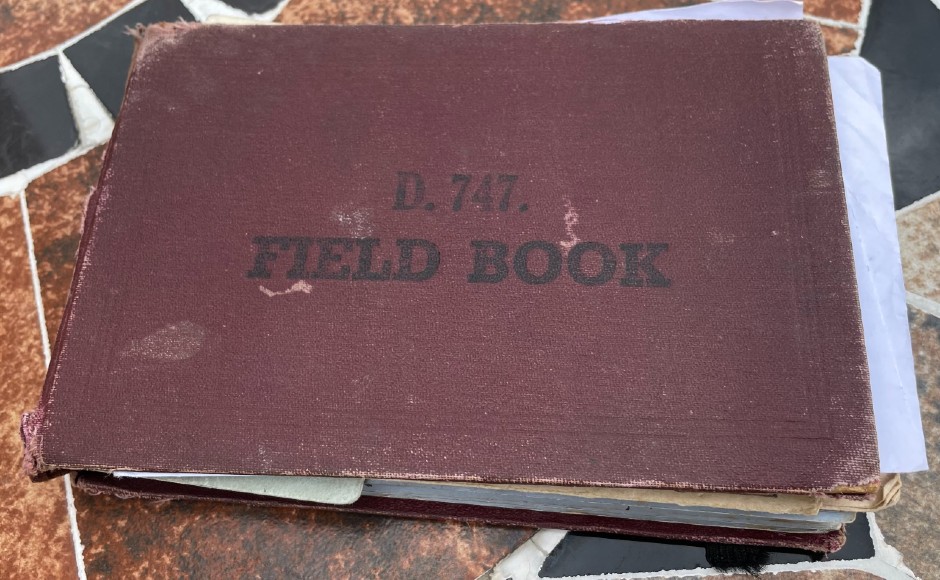
"He spoke about his wartime experiences publicly only once after he was asked to give a talk at his home church, Chalmers Church in Glasgow.
"My mother was in the congregation but they did not know each other before then and that is where they met."
Mr Gilmour said the field book made clear the prisoners didn't have enough food any day and the camp was a harsh working environment.
"My father recorded the effect of disease he had, spells in hospital and the deaths of prisoners," he added
"It also has information on diet, key dates such as his liberation on 15 August, 1945 and Japanese writing as he was learning the language.
"We know that he befriended at least one Japanese guard and they exchanged family photographs."
Mr Gilmour said his father had a strong desire to survive the war and get home to Glasgow.
"He only had one sister and she had died just before the war of scarlet fever and his mother was a widow and had nobody else in the world," he revealed.
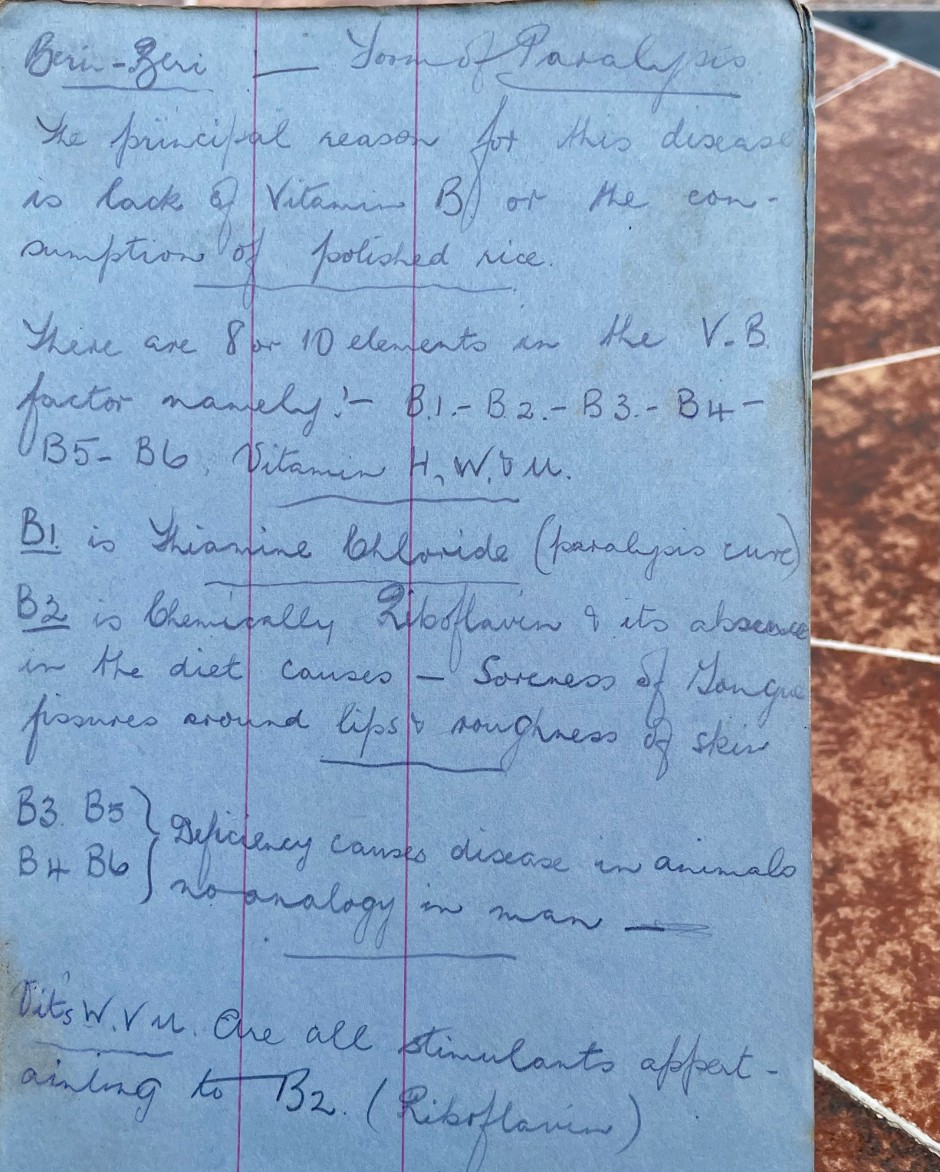
The minister said his father took on a leadership role in the camp and learning Japanese was likely a key element to his survival.
"The strong urge to get back to his mother was probably linked to his decision to learn Japanese and make himself valuable," he added.
"His Christian faith would have said ‘I am not only helping myself, but helping others' in the camp by being able to communicate with the guards and building trust and respect with them even in the most difficult of circumstances.
"However, after he gave the talk at the church he ripped out several pages of the field book and never spoke about his experiences again."
Mr Gilmour grew up in Millerston, part of the parish of Stepps near Glasgow and his father was on the congregational board of the former Whitehill Parish Church.
"My father always tried to do things to a very high standard," he explained.
"He was asked to be an elder but he did not like to elevate himself but he would contribute if asked to do something.
"My brothers and I are like that, we will take responsibility and make a contribution, not just sit quietly and observe.
"All three of us have been involved in the church all our lives although one brother, Stewart, died in his thirties.
"If we take something on and try our best, that definitely came from our father.
"His faith helped him survive the camp, we all went to church together, we were all in the Young Worshippers' League and went to Sunday School and Bible class.
"The pattern of church life came from my father who was a very straightforward person, called a spade a spade and just got on with things."
Mr Gilmour said his father's legacy helped inspire him to enter the ministry of the Church of Scotland.
In the Gospel of St Matthew in the Bible, Jesus says "Blessed are the peacemakers, for they will be called children of God."
Reflecting on his visit to the memorial, Mr Gilmour said: "I prayed for peace and I've got to keep doing what I can do to be thoughtful and critical and aware and engaged in trying to create a better world."
